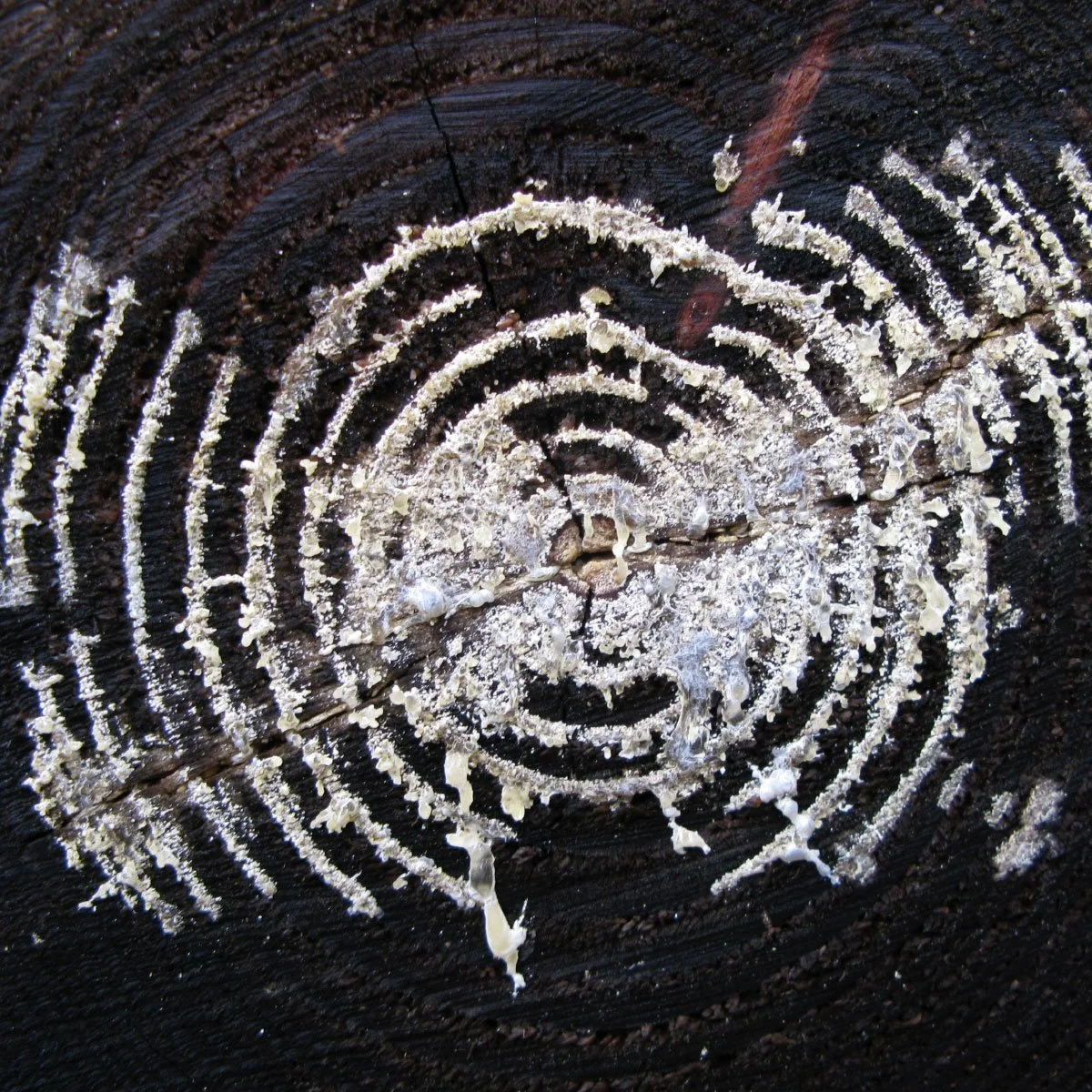Josué invites us to challenge extractive and colonial lenses by embracing the overwhelming force of the creative urge. How might we break apart from the constant pressure of social media to envision the new modes of creation and creativity that these stories need in order to be told?
Read MoreJarod (@cryptonaturalist) reminds us, limits are nourishing within poetry, and can be a virtue in life. If we accept the messy, twisted, and gnarled realities of life, we can escape the cold and dead store bought narratives about who we are supposed to be and instead lean into real freedom.
Read MoreTricia Hersey joins Ayana to unwind the complicated ties of exhaustion and exploitation. Tricia’s words serve as incantations against the brainwashing of grind culture as she and Ayana investigate the systems that benefit from keeping us stagnant.
Read MoreVeda calls us to investigate our liquid selves – the tears and sweat that make us human, the rituals of baptism and bathing that connect us to that which lies beyond. As Veda states, water is always in search of itself. How might understanding water begin to help us in our search for ourselves?
Read MoreBeginning in January all episodes released to the public via our website, digital streaming services, and radio syndicates will be standard episodes under an hour. Episode that exceeds an hour in length will be available on Patreon…
Read MorePart two of the conversation between brontë and Tiffany spans further inquiry into shoals, the physical desire to belong to Earth, agency, eros, spiritual correction, the pleasure and potential of failure, and that which cannot be translated, but instead has to be experienced or co-witnessed to be understood.
Read Morebrontë and Tiffany explore sacred laughter, Black and Indigenous feminism, sexuality, liberation, ceremony, and protocol. This simultaneously intimate and expansive dialogue allows us to rethink the stories and structures we’ve been told regarding Black and Indigenous relations.
Read MoreSpeaking to the ways that carrying the trauma of caste manifests within the body, Thenmozhi emphasizes the importance of slowing down to process the grief and pain caused by mindless oppression. She offers important context to the conversation about caste, emphasizing the ways caste discrimination manifests within global schemes of technology and power distribution.
Read MoreThis Slow Study Course is a series of lectures and practice prompts from Bayo’s 2021 edition of We Will Dance With Mountains: Into the Cracks! wherein 1000+ people gathered. It is a carnivalesque course in postactivism, a matter of fissures, fault lines, cracks, openings, seismic shifts, endings, and fugitive marronage.
Read MoreMaya introduces listeners to the science behind forest fires and urges us to see fire as not simply “destructive,” but rather as one of the many cycles of earth. From practices of cultural burning to current studies on post fire diversity, the creative and regenerative power of the forest cannot be overlooked.
Read MoreSophie invites us to embrace rot and decay, to welcome our demons to the dinner table, and to prepare for uncertain futures with tenderness. Sophie provides a route to overcome the death-trap that is self-righteousness, instead prioritizing humble complexity and surrender to relationality.
Read MoreVandana and Ayana piece apart the threads of our global culture that lead to exploitation and extraction - focusing on the policies of division and distraction that keep us from each other. The divisions that world-leaders focus so much time on are created in order to dominate and exploit the nature on which the earthly community depends.
Dori discusses magical and liberatory practices, ancestral Jewish healing traditions, and the necessity of reclaiming Judaism from Zionism in the name of collective liberation. She shares sweet stories of garlic and cedar, the generosity of belonging, and the blessing of our collective and intricate work.
Read MoreIsmail guides listeners through an overview of where we are in our relationship with drugs in the American context, and how this relationship is indicative of our relationship with the Earth and with humanity broadly encouraging us to move beyond the black and white view that some drugs are medicine while others are criminal.
Read MoreThis Slow Study Course is a series of lectures and practice prompts from Bayo’s 2021 edition of We Will Dance With Mountains: Into the Cracks! wherein 1000+ people gathered. It is a carnivalesque course in postactivism, a matter of fissures, fault lines, cracks, openings, seismic shifts, endings, and fugitive marronage.
Read MoreLark shares about the relentless and direct activism Appalachians Against Pipelines has been doing to stop the pipeline, build community resistance, and advocate for the needs of their communities in the face of developers, oil and gas advocates, and a continued disregard for Appalachian voices.
Read MoreWe are challenged to think about our capacity, or willingness, to know invasive plants - Tusha queries listeners, “Do we know their reasons for making home in unfamiliar soils? Or what gifts and responsibilities they carry?” We are left with much to think about in the realm of curiosity and acceptance.
Read MoreYoalli brings us to the Chacahua-Pastoría Lagoons in Oaxaca, Mexico, to investigate deep connections with land, ongoing colonial violence, and the grief that comes alongside loving a place; a heartening conversation about the importance of ecological grief, rage, and sadness.
Read MoreAntonia dives into the tension that exists in living in and caring for lands that have been violently colonized, calling listeners to understand plants both in the ways that colonization has affected their legacies, and within anti-colonial structures that suggest there are other ways to engage with the plants around us.
Read MoreMimi’s work is grounded in the question: “How do we find new ways to talk about what hurts?” Flipping diagnosis on its head, Mimi guides us to find new ways to name what we feel and to decolonize the language of feeling itself.
Read More





![TIFFANY LETHABO KING on The Black Shoals [with brontë velez], Part Two /316](https://images.squarespace-cdn.com/content/v1/5403e5dbe4b04db10d1d362b/1670886696027-B18TPEPB1F02GVOCNCRM/Tiffany-Lethabo-King_For-The-Wild_Episode2.jpg)
![TIFFANY LETHABO KING on The Black Shoals [with brontë velez], Part One /315](https://images.squarespace-cdn.com/content/v1/5403e5dbe4b04db10d1d362b/1670276370810-8C4398YL28P1N7EDZ8OG/Tiffany-Lethabo-King_For-The-Wild_Episode1.jpg)












